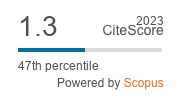Why Have Labour Markets Reacted To The Global Crisis In Different Ways?
DOI:
https://doi.org/10.1515/cer-2016-0027Keywords:
employment, unemployment, the global crisis, EUAbstract
This paper aims to identify the effects of the global crisis on employment and unemployment in the EU countries and indicate factors which may explain the differentiated response of labour markets to this crisis.
Analyses show that the global economic crisis affected the labour markets of EU countries, causing declines in employment and increases in unemployment. The greatest declines in employment were observed in Greece, Estonia, Ireland, Spain, Iceland, and Portugal, and the lowest in Austria, Belgium, the Netherlands, and Poland. The greatest increase in unemployment occurred in the Baltic countries, Greece, Spain, and Portugal.
The analyses indicate that the scale of changes in employment and unemployment during the global crisis depends on such factors as: the depth of the demand shock and scale of GDP adjustments; the degree of openness of the economy; the scope of alternative labour market adjustments and some labour market institutions, especially employment protection legislation and the share of fixed-term employment contracts. The analyses indicate that the smallest declines in employment (and correspondingly the smallest increases in unemployment) during the crisis can be expected in countries where the EPL indexes and share of those employed on fixed-term employment contracts in total employment are moderate.
Downloads
References
Bednarski M. (2012), Zatrudnienie na czas określony. Perspektywa pracodawców, [in:] M. Bednarski, K.W. Frieske (ed.), Zatrudnienie na czas określony w polskiej gospodarce. Społeczne i ekonomiczne konsekwencje zjawiska, Instytut Pracy i Spraw Socjalnych, Warsaw.
Google Scholar
Blanchard O., Summers L. (1986), Hysteresis and the European Unemployment Problem, NBER Macroeconomics Annual, No. 1, MIT Press, Cambridge, MA.
Google Scholar
Boeri T., van Ours J. (2011), Ekonomia niedoskonałych rynków pracy, Wolters Kluwer Polska Sp. z o.o., Warsaw.
Google Scholar
Cahuc P., Zylberberg A. (2004), Labour Economics, The MIT Press, Cambridge, Massachusetts, London.
Google Scholar
Eurostat,: epp.eurostat.ec.europa.eu
Google Scholar
Greenwald B.C., Stiglitz J.E. (1995), Labour Market Adjustments and the Persistence of Unemployment, AEA Papers and Proceedings.
Google Scholar
Kwiatkowski E., Włodarczyk P. (2012), Wpływ prawnej ochrony zatrudnienia na rynek pracy w warunkach negatywnego szoku ekonomicznego, ‘Gospodarka Narodowa’, Vol. LXXX/XXI, No. 11–12.
Google Scholar
Kwiatkowski E., Włodarczyk P. (2015), Instytucje rynku pracy i polityka makroekonomiczna a zatrudnienie w krajach OECD w okresie globalnego kryzysu, [in:] E. Kwiatkowski, B. Liberda (ed.), Determinanty rozwoju Polski. Rynek pracy i demografia, PTE, Warsaw.
Google Scholar
Lazear E.P. (1990), Job security provisions and unemployment, ‘Quarterly Journal of Economics’, No. 3.
Google Scholar
OECD, strona internetowa OECD: http://www.oecd.org
Google Scholar
Ostoj I. (2012), Formalne i nieformalne instytucje rynku pracy, Wydawnictwo Uniwersytetu Ekonomicznego w Katowicach, Katowice.
Google Scholar
Smith S. (2003), Labour Economics, Routledge, London–New York.
Google Scholar
Strzelecki P., Wyszyński R., Saczuk K. (2009), Zjawisko chomikowania pracy w polskich przedsiębiorstwach po okresie transformacji, ‘Bank i Kredyt’, 40(6).
Google Scholar
Downloads
Published
How to Cite
Issue
Section
License

This work is licensed under a Creative Commons Attribution-NonCommercial-NoDerivatives 4.0 International License.











